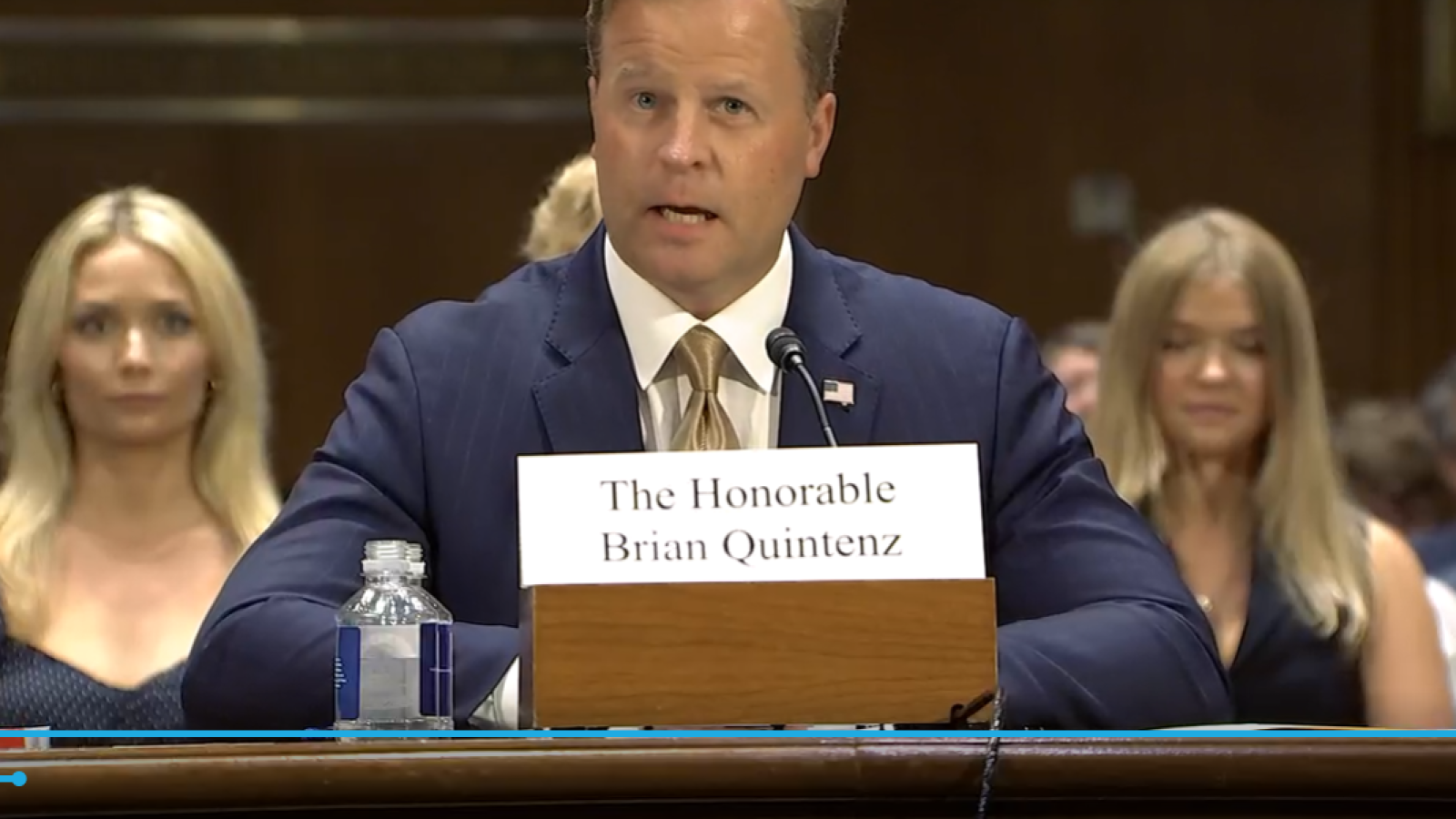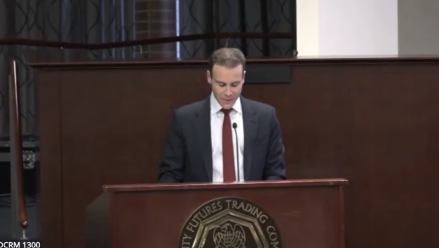President Donald Trump’s pick to lead the Commodity Futures Trading Commission (CFTC) Brian Quintenz began the confirmation process on Tuesday, and during questioning addressed a key issue related to event contracts. He responded during his Senate confirmation hearing to tribal concerns about sports event contracts by arguing that Native American tribes are free to get CFTC approval and offer their own versions of these markets.
Quintenz was questioned by the United States Senate Committee on Agriculture, Nutrition, and Forestry. While many of the questions covered farm-related issues or cryptocurrency, senators also covered topics including his stance on prediction markets in general, the ability of those markets to offer sports betting, and Quintenz’s own relationship with leading prediction exchange Kalshi.
The committee did not vote Tuesday, and did not indicate when it would. Should Quintenz’s nomination clear the committee, the next stop will be a vote before the full Senate.
Quintenz says, ‘The law is clear’
Sen. Adam Schiff of California questioned Quintenz on CFTC-registered prediction markets like Kalshi offering sports event contracts that allow customers to bet on sports outcomes, noting that it is an issue that has been raised as a concern by California tribes.
In response, Quintenz said “the law is clear” on the matter, but spoke only of events in general rather than sports specifically, despite Schiff’s question centering on sports.
“I appreciate the concerns that you mentioned,” Quintenz said. “I believe the law is very clear about the purpose of derivative contracts, and about events that have financial or economic consequences qualifying as commodities.
“But I would pledge to you, given that this is an area that has more recently found legislative clarity, given the actions of the agency previously, that I would have a very robust all-stakeholder engagement process. I would listen to the concerns of the tribes that you mentioned.”
It is not entirely clear what Quintenz meant by “legislative clarity.” While court decisions and the CFTC’s own enforcement actions have arguably offered some degree of clarity on the current status of sports event contracts, no U.S.legislature, at the state or federal level, has passed any law on the status of sports event contracts. The company, however, does have multiple cases against states pending in the federal courts.
CFTC Acting Chair Caroline Pham May 30 hosted representatives from eight tribal groups to hear concerns about the agency allowing Kalshi to offer sports event contracts. The representatives left the meeting feeling like Pham and the CFTC would not take any action, and unsure if the agency would in the future.
“She basically said at the outset, ‘I’m happy to talk to you, but I am out the door and I have no idea what the new director might do with this issue,'” one source said at the time.
Quintenz suggests tribes could participate
During the confirmation hearing, Quintenz seemed to offer a suggestion that tribes concerned about prediction markets infringing on their exclusivity should simply offer their own event contracts.
“Nothing in the CEA [Commodity Exchange Act], that I’m aware of, prohibits, or affects, the opportunity of tribes to offer those products and those markets and those services,” he said.
Tribes — like any other organization — would be allowed to participate in prediction exchanges either as a Designated Contracts Market (DCM), the position Kalshi currently holds, or a Futures Commission Merchant (FCM), which passes customers on to a DCM. Federally recognized tribes in many states have exclusivity for gaming, and they say sports event contracts are encroaching on that. Even if those same tribes could participate in prediction markets, the issue of exclusivity still exists.
The legality of sports event contracts — and how they interact with state gaming laws — has been the subject of a number of federal lawsuits this year. Kalshi won injunctions to prevent the states of Nevada and New Jersey from enforcing cease-and-desist letters against the business. It is pursuing a similar order in Maryland.
When questioned on whether the CFTC would respect courts’ decisions, Quintenz appeared to suggest that appealing lower-court decisions wouldn’t be out of the question.
“I think that, depending on the outcome of the court case and where that is in the court system, the agency would follow the appropriate court mandate,” Quintenz said.
But when asked directly about whether he would appeal a court ruling that finds sports event contracts unlawful, he didn’t give a yes-or-no answer.
“I think that the agency would want to ensure that it’s defending the Commodity Exchange Act and the remit the agency has around futures and event contracts.”
Schiff also asked Quintenz about the canceled CFTC roundtable on prediction markets. Quintenz said: “I have no information as to why it was canceled and I’d be happy to reschedule.”
Quintenz’s ties to Kalshi
Sen. Amy Klobuchar asked Quintenz about his position as a Kalshi director and shareholder. He said that he would step down from the prediction market’s board and sell his shares before he takes up the CFTC position, something he had previously outlined in an ethics letter.
“I will abide by all applicable ethics statutes and regulations,” Quintenz said. “I will have a screener in my office to ensure that no matter inappropriately comes before me. There are a number of ways to ensure I meet the timelines and I am prepared to explore all avenues to do that.”
He wrote in the ethics letter that he would recuse himself for one year regarding Kalshi measures should he get the CFTC position.
Sen. Cory Booker tied the question of Quintenz’s relationship with Kalshi — as well as the company’s hiring of Donald Trump, Jr. as a special advisor — to the question of sports event contracts, questioning whether his decisions can be seen as impartial given these links.
“I hope you can appreciate that there will be some real questions about your role,” Booker said. “I’m worried you’re going to be in a position where — as chairman — are you going to feel empowered to push back on a company that is being advised by the president’s son?”





